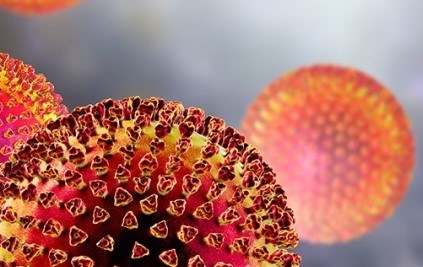Researchers from Tel Aviv University have demonstrated that ozone effectively sanitizes surfaces against the virus after a short exposure to low concentrations of the gas.
Most people recognize ozone as a thin layer of the Earth's atmosphere that guards us against the harmful effects of UV radiation. However, ozone is also known as a strong oxidant and disinfectant employed in water and wastewater treatment schemes.
The research team was led by Dr Ines Zucker from the School of Mechanical Engineering at Tel Aviv University in Israel. She collaborated with Dr Moshe Dessau from the Azrieli Faculty of Medicine at Bar Ilan University in the Galilee and Dr Yaal Lester from the Azrieli College in Jerusalem in order to investigate the feasibility of ozone for indoor inactivation of SARS-CoV-2.
"Gaseous ozone is generated from oxygen gas by electrical discharge. Now, for the first time, we have managed to prove that it is highly efficient in combating Coronavirus as well", Dr Zucker explains.
She told The Brussels Times that she has been working on ozone-based treatment of water and waste water for many years now. “The ongoing COVID-19 pandemic motivated us to switch our focus, and to demonstrate the potential use of ozone gas disinfection to combat the outbreak. We contacted Dr Dessau, and together proved the concept within a few weeks of research.”
In the course of their study, the researchers demonstrated the inactivation from various infected surfaces, even in hard-to-reach locations. They demonstrated a high level of disinfection within minutes, even on surfaces not typically disinfected with manually-applied liquid disinfectants with a statistical success rate of above 90%.
According to Zucker, the method involves inexpensive and readily available technology, which can be utilized to disinfect hospitals, schools, hotels, and even aircraft and entertainment halls. She estimates that since the gas can be produced relatively cheaply and easily, it should be possible to introduce ozone disinfecting systems on an industrial scale to combat spread of COVID-19.
Is the method already ready for practical use and commercialisation?
“The process needs to be optimized,” she replied. “We need to understand the effect of the treated surface, the environmental conditions, and optimize the ozone concentration and exposure time accordingly. Then, we can move to the next stage and suggest a design for a mobile system which can be used for indoor disinfection.”
How much will the use of ozone for disinfection of closed public spaces reduce the spread of the virus and relax lockdown measures? “Great question. According to previous research, SARS-CoV-2 remains active on aerosols and surfaces for between several hours and several days, depending on the nature of the surface and environmental conditions.”
“Ozone-based treatment may be an important link in breaking the chain of infection through surfaces and aerosols,” she concludes. “By the way, the treatment is not limited to the SARS-CoV-2 virus, thus further examination is worthwhile.”
The Brussels Times

